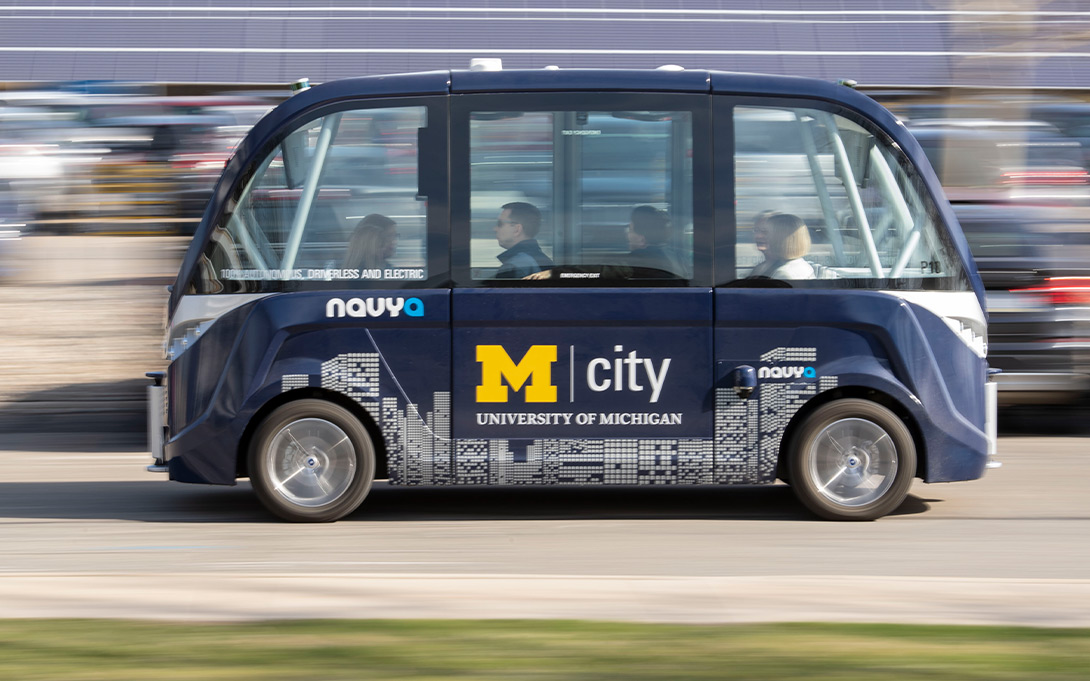Mobility: The Socioeconomic Implications of Autonomous Vehicles
Autonomous vehicle (AV) technology is developing rapidly and is poised to change all aspects of transportation and mobility. AVs are already on the road, some without backup human drivers. Widespread adoption of AVs will change the demand for labor, conceptions of private vehicle ownership, and urban land use. On the one hand, the implementation of AVs promises increased safety, efficiency, and access to transportation. On the other hand, scientists and social scientists predict that AVs will make pollution worse and exacerbate socioeconomic inequality. Policymakers must be prepared for the legislative and regulatory challenges AVs will soon bring.
This memo highlights some of the positive and negative economic, infrastructural, environmental, and socioeconomic implications of the widespread adoption of vehicles with a high level of autonomy. Each section then presents policy suggestions to address the ongoing and coming societal changes. Finally, the memo concludes with a discussion of the technological, regulatory, and ethical barriers to even getting these highly autonomous vehicles on the road as regular consumer products.

Key findings
- AVs have many economics implications, both good and bad. They could reduce the economic burden of traffic jams and vehicle accidents, but could contribute to a coming unemployment crisis and cause economic instability.
- AVs could also change the way urban land is used by freeing up valuable urban land, which could then be used for the public good.
- Because of parking fees, "zombie cars" could be created through owners sending AVs to drive around instead of parking, contributing to pollution and traffic congestion. To combat this, policymakers should support the development of alternative fuel vehicles and car sharing programs.
- Through more transportation options, AVs will enable more socioeconomic mobility. To ensure AVs support this, policymakers should frame AVs as a solution to reliance on government social services and regulate and limit long-commute AVs. But, policymakers must be weary because AVs could further support unsustainable models of wealthy suburbia.
- Because policymakers will shape how AVs integrate into society, it is necessary to engage the right experts in policymaking to ensure it is a smooth and ethical transition.
